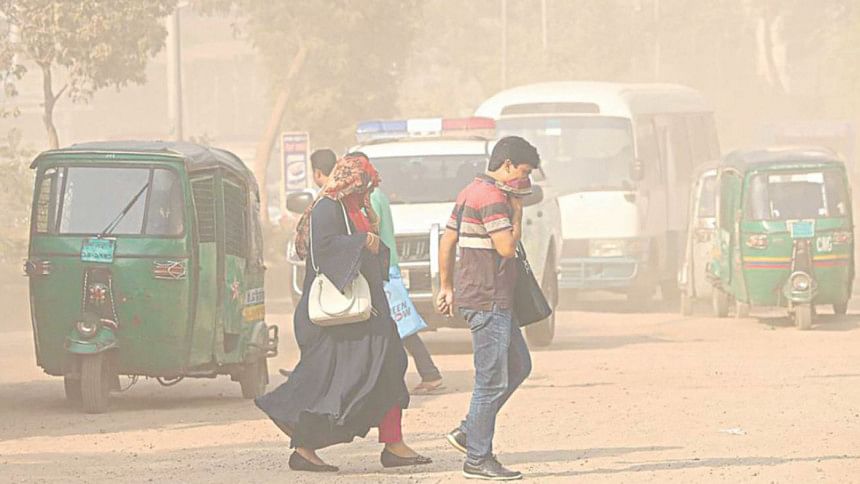Legal mechanism to control air pollution

Over the past two years, Dhaka has been among the top five cities of the world in terms of pollution. According to the Environmental Performance Index (EPI) report of 2018, Bangladesh is the 179th of 180 countries - 40 ranks below its position in 2010. The causes of this downfall include shrinkage of forest areas, plastic wastes resulting in air and water pollution.
According to the Department of Environment (DoE) and the World Bank, old and unfit vehicles are responsible for most of the pollution in the city. Operative brick kilns are also major contributors. In furtherance of its commitment to reduce air pollution levels to zero by 2020, the government enacted the Brick Production and Brick Kiln Building (Control) Act of 2013.
Another source of air pollution is the tanneries. According to recent Hugh Court directives, owners of tanneries are liable to shift their establishments to environment-friendly locations and are obligated to pay for the ensuing environmental costs based on the polluter's pay principle.
Due to the growing concerns about the air quality, Bangladesh Environment Lawyer's Association (BELA), Department of Environment (DoE) and Bangladesh University of Engineering and Technology (BUET) have jointly drafted a law for ensuring clean air across the country. According to the media report, the draft law is yet to be presented before the cabinet and parliament. In the draft law, a total of 32 sections and some sub-sections has been incorporated. According to the draft law, the Department of Environment is the monitoring cell which must be fully equipped in order to be able to successfully implement the law. The law and the schedules included in the draft version are based on the sector guidelines on pollution which is hard to amend once passed. The draft of the law, if passed by the Parliament will be more action oriented than sanction oriented.
Section 3 of draft includes the following principles: sustainable development (right to participate, access to information, redress), polluter pays principle and precautionary principles. Section 6 states about National Air Quality Management Plan where the Department of Environment will, within one year from the coming into effect of this law, prepare a time-bound National Air Quality Management Plan (NAQMP) that will seek-to give effect to the standards and control measures to improve the air quality. Section 17(1) states that the government will strengthen (scientific and technological) research on air pollution prevention and control. It will also promote advanced and suitable technologies for the prevention and control of air pollution. Section 25 (1) states that a person convicted of an offence is liable to a fine, or to imprisonment which, in the case of a first offence, will be less than two years. However, if the offence is committed for the second or third time, it must be stopped permanently.
Clean air must be for all and there must be no deviation on behalf of the government agencies to ensure citizen's right to clean air. It is imperative to ensure that the law is being implemented for a pollution free environment by the government.
Maisha Maliha Lawyer, Bangladesh Environmental Lawyer's Association (BELA)

 For all latest news, follow The Daily Star's Google News channel.
For all latest news, follow The Daily Star's Google News channel. 



Comments